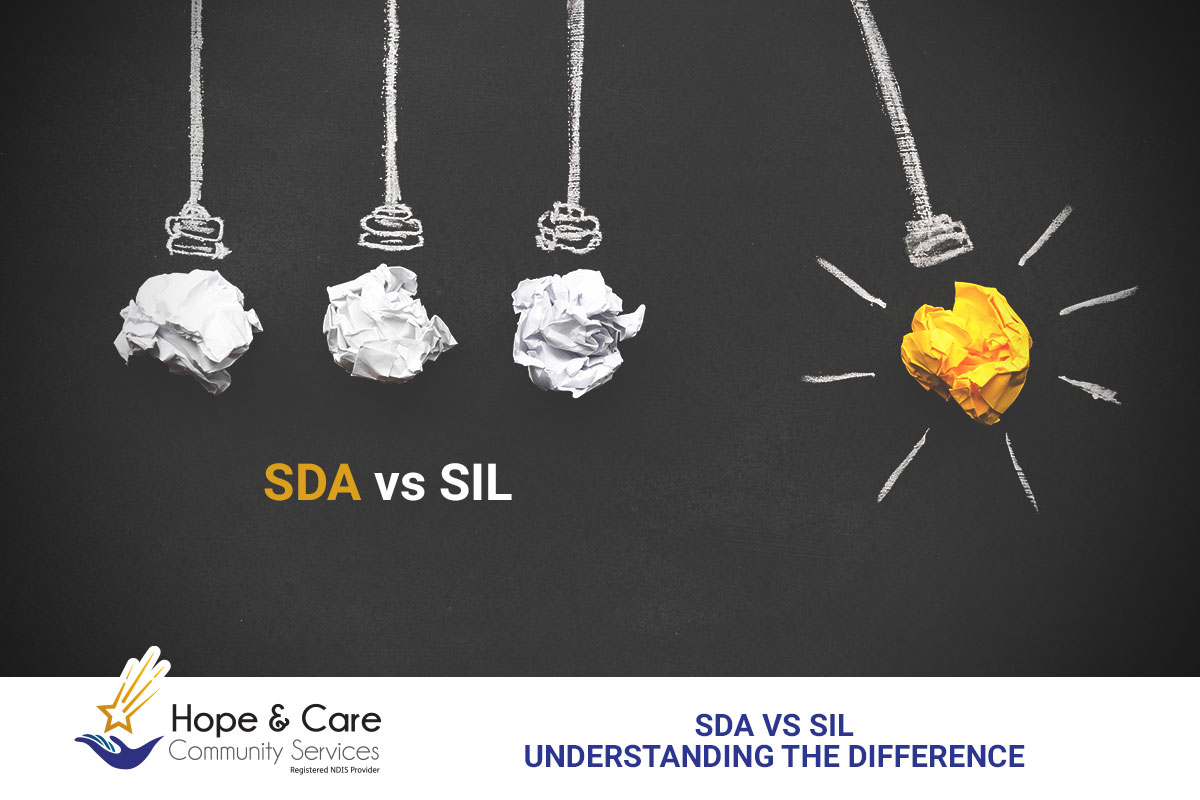
In the realm of the National Disability Insurance Scheme (NDIS), two acronyms frequently arise: SDA and SIL. Though they both aim to enhance the living situations of individuals with disabilities, SDA (Specialist Disability Accommodation) and SIL (Supported Independent Living) cater to different needs and aspects of disability support. As a registered NDIS service provider, it’s crucial to delineate these terms for participants seeking the most suitable living arrangements. This article unpacks the distinctions between SDA and SIL, helping you navigate the options and make informed decisions about your or your loved one’s care.
What is Specialist Disability Accommodation (SDA)?
Specialist Disability Accommodation (SDA) refers to the housing solution itself. It’s designed for individuals who require specialized housing due to extreme functional impairment or very high support needs. SDA homes are built or modified with specific features to accommodate these needs, ensuring accessibility and safety.
Key Points about SDA:
- Purpose: To provide physical environments that cater to the severe functional impairments or high support needs of eligible NDIS participants.
- Funding: SDA funding covers the physical dwelling only. It does not encompass the support services a participant might need to live independently.
- Eligibility: Limited to a small percentage of NDIS participants with extreme functional impairment or very high support needs.
What is Supported Independent Living (SIL)?
Supported Independent Living (SIL), on the other hand, is all about the supports and services that enable participants to live as independently as possible. This can include assistance with daily tasks, personal care, and community participation. SIL is provided within the participant’s home, regardless of whether it’s an SDA property or another type of dwelling.
Key Points about SIL:
- Purpose: To support participants in developing the skills they need to live as autonomously as possible.
- Funding: SIL funding is allocated for the support services rather than the housing itself. It’s tailored to the individual’s needs, covering the cost of caregivers and support workers.
- Eligibility: Aimed at NDIS participants who cannot live independently without significant support, regardless of their housing type.
Understanding the Differences
While SDA and SIL may intersect in terms of offering solutions for individuals with disabilities, their core focuses differ significantly:
- SDA is about the physical housing and its accessibility features.
- SIL involves support services provided within the living environment to assist with daily life.
A participant might be eligible for both, with SDA funding assisting in accessing suitable housing and SIL funding supporting their day-to-day living needs. However, one can receive SIL supports without living in an SDA-approved dwelling, and vice versa.
Conclusion
Choosing between SDA and SIL, or determining if you’re eligible for both, depends on your specific needs and circumstances. Understanding these distinctions is pivotal in navigating the NDIS landscape and making informed decisions about the most appropriate and supportive living arrangement. As a registered NDIS service provider, our goal is to clarify these options, ensuring you or your loved one can access the necessary supports to live a fulfilling life.
HCCS is a Registered NDIS provider!
As Registered Provider, we understand the intricacies of the NDIS. Unlock the full potential of your funding and provide the guidance you need to reach your goals. Feel free to Contact Us to explore how we can assist you on your journey. For instance, the NDIS is there to make a positive difference in your life, and we’re here to help!.
Want to learn more? Read other articles :
- Experience a Fuller Life with Daily Living Assistance
- Exploring NDIS SIL Properties with Hope and Care
- Individualised Living Options (ILO) in the NDIS. How can it work for you?
HCCS is a rergistered NDIS provider. Learn more about our services.
♥ We are available in Brisbane! – Our team is just a call away!

This article provides great clarity on the differences between SDA and SIL. It’s so important to understand that while Specialist Disability Accommodation focuses on tailored living spaces, supported independent living services are more about the daily support individuals need to live independently. It’s helpful for families to grasp both options when considering the best fit for their loved ones’ needs.